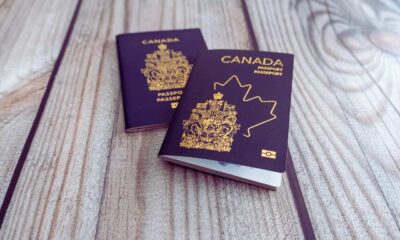Work in Canada
Canada To Resume Canadian Experience Class (CEC) Draws for In-Country Candidates

Canada has made a significant stride towards making it easier for temporary residents to become permanent residents by targeting those living already inside the country. The Canadian Minister of Immigration, Refugees and Citizenship, Marc Miller, has announced that there will be more immigration draws by resuming Canadian Experience Class draws for foreign nationals who are temporary residents in Canada.
Rising Opportunities for Temporary Residents
Now, both federal and provincial draws will prioritize candidates already in Canada as temporary residents. Through this approach, not only does Canada recognize temporary residents’ contributions but it also aligns with the wider immigration goals of the country which seek to attract and retain talents. By simplifying ways of becoming permanent residents for them, Canada would strengthen its labor market and promote harmony among its diverse communities.
Maximize Your IELTS Score:
Start your English journey: Learn English with British Council teachers — Up to 20% off
English Online Self-Study course: Learn English at your own pace with bite-sized exercises — Up to 20% off
Prepare for IELTS with the experts: Get the score you need with the co-creator of the IELTS test- Up to 30% off
Setting Temporary Immigration Targets
In unison with province ministers, Ottawa intends to develop interim immigration targets to cut down on temporary residence numbers by 5% over three years ahead. This action is part of an overall attempt to manage immigration flows throughout the entire nation. More Canadian Experience Class (CEC) draws will be created to respond to the needs of temporary residents such as international students or TFWs.
Canadian Experience Class (CEC) Draws and Eligibility
Under the Canadian Experience Class (CEC) immigration program, eligibility is assessed based on specific criteria designed to recognize the contributions of temporary residents. To qualify for the CEC program, candidates must meet the following criteria:
• Work Experience: Candidates must have acquired 12 months of full-time work experience in occupations classified as TEER categories 0, 1, 2, or 3 of the National Occupation Classification (NOC). These occupations encompass managerial, professional, technical, or skilled trade roles.
• Canadian Work Experience: The qualifying work experience must have been acquired within the 36 months immediately preceding the date of application.
• Language Proficiency: Candidates must demonstrate proficiency in one of Canada’s official languages, either English or French, depending on the nature of their work experience. The level of proficiency required varies based on the NOC category of the occupation.
• Admissibility: Candidates must not be inadmissible to Canada on medical, criminal, or security grounds.
Comprehensive Language Proficiency Requirements
Language proficiency is a crucial component of the CEC eligibility criteria. Applicants must demonstrate proficiency in all four language abilities: reading, writing, speaking, and listening. The required level of proficiency varies based on the NOC category of the occupation:
| CLB Level | Test Type | Speaking | Listening | Reading | Writing |
| 7 | IELTS General Training Test Results | 6.0 | 6.0 | 6.0 | 6.0 |
| CELPIP General Test Results | 7 | 7 | 7 | 7 | |
| TEF Canada Test Results | 310-348 | 249-279 | 207-232 | 310-348 | |
| TCF Canada Test Results | 10-11 | 458-502 | 453-498 | 10-11 | |
| 5 | IELTS General Training Test Results | 5.0 | 5.0 | 4.0 | 5.0 |
| CELPIP General Test Results | 5 | 5 | 5 | 5 | |
| TEF Canada Test Results | 226-270 | 181-216 | 151-180 | 226-270 | |
| TCF Canada Test Results | 6 | 369-397 | 6 | 375-405 |
Canada’s move to focus on immigration draws on candidates already in the country and represents a decisive step forward in terms of enhancing TR chances in Canada.






















